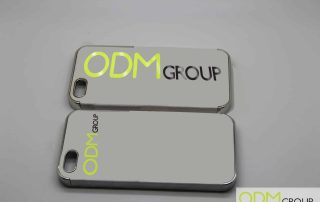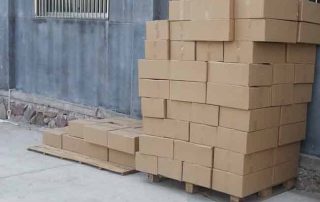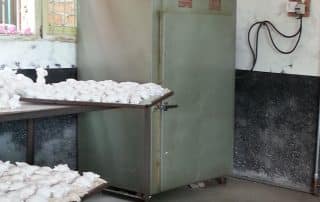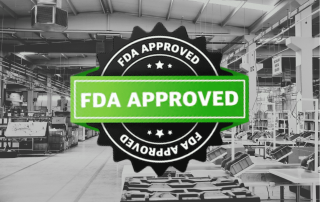ODM visits a wide variety of factories in China each month. Hence, on this trip, we notice how important it is to ensure checks and learn more about mass production. For instance, polyresin products can have a size tolerance during mass production. You might have read our numerous manufacturing and mass production blogs. What makes this blog unique will be the link to our previous blogs. One of the linked factory blogs has already detailed most of the steps in manufacturing polyresin figurines. You can check it out here:
However, one of the steps that were not explained will be why polyresin products can have a size tolerance during mass production. Let’s continue reading to find out more about shrinkage and tolerance!
During the sample stage, a clay model will be produced first. The clay model is created to aid in modeling the perfect mold opening at the next step. This is followed by the production of the Polypropylene (PP) sample mold for mass production, made using melted silicone left to cool for a few hours. However, during the cooling stage, the hardened silicone mold will size down and become smaller. Similar to the liquid polyresin, it will cool down and size down.
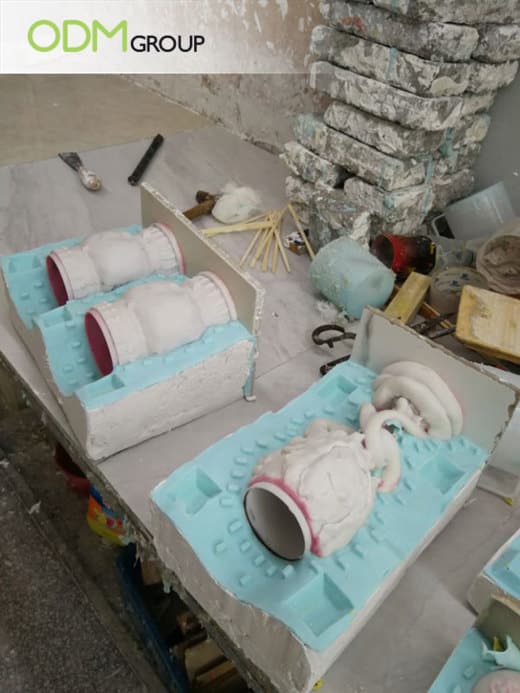
mass production
What is Shrinkage?
Shrinkage is characterized as the difference between the direct elements of the mold and the shaped part, both made after the cooling process. It is considered normal for silicone materials to shrink after molding. However, shrinkage is not only affected by the material but also by other factors such as temperature, pressure, etc.
Furthermore, it is extremely important for the mold designer to determine the amount of shrinkage for the chosen material and incorporate this remittance into the mold cavity. Despite the fact that the mold is designed to envision the shrinkage especially during mass production, shrinkage is still a volume impact. Nonetheless, for complex molds, it will most definitely affect the lineal shrinkage in one direction and increment it in another.
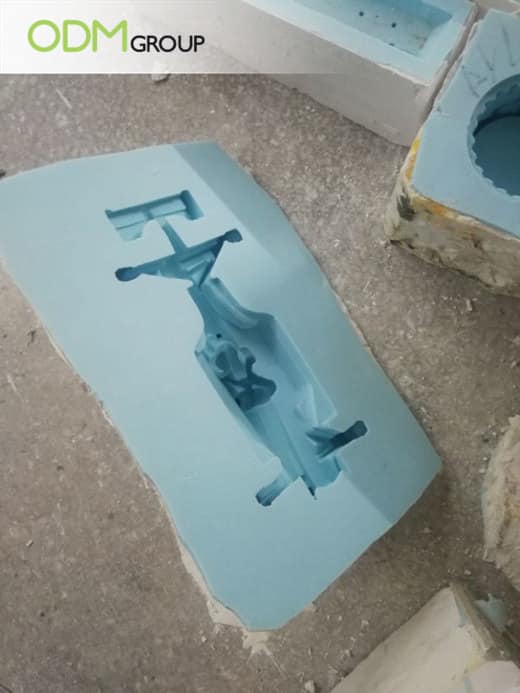
mass production
What is Tolerance?
Tolerance is always an issue that arises when designing something. Tolerances are often an afterthought, however, it is actually incredibly important that tolerances are considered at an early stage of the design process. The ODM Group posted an article about it before. You can read up more about design considerations such as tolerance here:
Learning Points
Eventually, during mass production, the factory will use several PP sample open silicone molds to manufacture the polyresin products. Thus, the reason why the product size will turn out even smaller than the sample during mass production.
It is incredible to learn that the skill of the mold manufacturer will constantly be pointed towards factors such as shrinkage and tolerance and that these factors cannot be dispensed with altogether.
Contact Us
Contact us today if you would like more advice on ways to vastly improve your business. Do also contact us if you have any more queries on the customization of polyresin products.
Here are ODM, our team can help you come up with inventive and unique product design and packaging. Our Mindsparkz team can help you in designing branded promotional merchandise for your business.
Not sure what you’re looking for? We also provide product brainstorming sessions and quality control inspections. Do not hesitate to contact our team today to learn more about how we can help you grow your business through the use of effective custom promotional merchandise products!
Related Blogs
Read up more on the details of Injection Moulding:
Time to take a step back and view the process of mold modification:
Over here, you will know more about silicone related products – Custom Silicone Baking Molds:
Notice how EntreMont has made themselves seen through the use of Garfield Comics and Silicone Molds:
Learn more here about silicone molds:
Check out our latest factory blog about custom sign manufacturing:
Frequently Asked Questions
What is PP?
Polypropylene (PP) is a thermoplastic “addition polymer” made from a combination of propylene monomers. They are used in a variety of applications to such as packaging for consumer products, plastic parts etc.
What is the time taken for mold making?
Generally, for normal mold making, it will take about 20-35 Days. This means you are able to get your T0 mold parts in about 30days. Afterward, an additional few days for mold improvements to kick start the T1 mold trial. Moreover, if you require further changes to the molds, more time will be taken.
Am I able to cast silicone into a silicone mold?
Yes, it is possible by casting silicone into a silicone mold. A two-part mold and release agent will be required.
